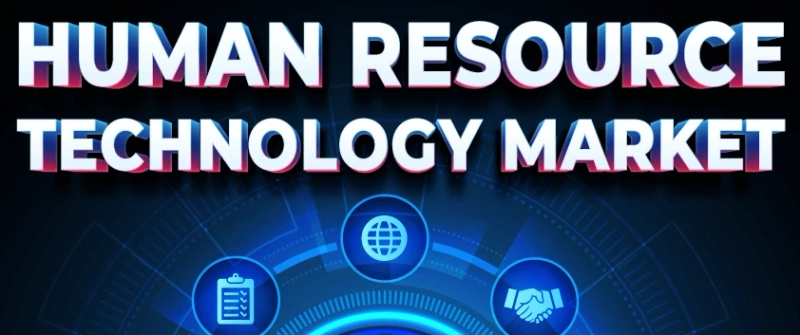In today's dynamic business environment, the role of technology in human resources (HR) has become increasingly pivotal. From streamlining recruitment processes to enhancing employee engagement, HR technology (HR tech) plays a vital role in driving organizational success. In this comprehensive exploration, we delve into the latest trends, market insights, and growth projections within the HR technology landscape.
Understanding the HR Technology Market
The human resource technology market size was valued at USD 22.90 billion in 2021 and is poised for significant growth. Projections indicate a steady increase, with the market expected to reach USD 39.90 billion by 2029, exhibiting a commendable CAGR of 7.5% during the forecast period. North America emerged as a dominant force in the global market, capturing a substantial share of 49.25% in 2022.
Segmentation and Key Components
Segmentation is crucial for understanding the diverse landscape of HR technology solutions. Key components include talent management, workforce management, recruitment, payroll management, performance management, and employee collaboration & engagement tools. Each component addresses specific HR challenges, offering tailored solutions to enhance organizational efficiency and employee productivity.
For more information, Request a Sample PDF - https://www.fortunebusinessinsights.com/enquiry/request-sample-pdf/human-resource-hr-technology-market-105437
Exploring HR Technology Solutions
HR technology solutions encompass a wide range of functionalities designed to streamline HR processes and enhance organizational efficiency. These solutions leverage cutting-edge technologies such as artificial intelligence (AI), machine learning (ML), and data analytics to automate routine tasks, improve decision-making, and optimize workforce management strategies. From applicant tracking systems (ATS) to learning management platforms, HR technology solutions cater to diverse needs across the employee lifecycle.
Deployment Models
HR technology solutions are typically deployed either on the cloud or on-premise, offering flexibility and scalability to meet diverse organizational requirements. Cloud-based solutions have gained popularity due to their accessibility, cost-effectiveness, and ease of implementation, especially for small and medium-sized enterprises (SMEs). On-premise solutions offer greater control over data security and customization options, catering to the specific needs of larger enterprises with complex HR ecosystems.
Enterprise Size and Industry Verticals
HR technology solutions cater to organizations of varying sizes, including SMEs and large enterprises. Regardless of size, organizations across diverse industry verticals such as BFSI, IT and Telecommunication, Government, Manufacturing, Retail, Healthcare, and Education benefit from HR technology solutions to streamline HR operations, improve employee engagement, and drive business growth.
Emerging Trends and Future Outlook
Several trends are reshaping the HR technology landscape, reflecting evolving workforce dynamics and organizational needs. The increasing adoption of artificial intelligence (AI) and machine learning (ML) for talent acquisition and management is revolutionizing HR practices, enabling predictive analytics for better decision-making. The rise of remote work and virtual collaboration tools has accelerated the demand for cloud-based HR solutions, facilitating seamless communication and collaboration among distributed teams.
Market Analysis and Growth Projections
The HR technology market is characterized by steady growth fueled by technological advancements, changing workforce dynamics, and evolving organizational needs. As organizations prioritize digital transformation initiatives, investments in HR technology are expected to surge, driving market growth and innovation. Moreover, the integration of HR technology with other business systems such as ERP and CRM further enhances organizational agility and efficiency, driving market expansion.
Investment Opportunities and Challenges
Investors and businesses exploring opportunities within the HR technology market should conduct thorough market analysis to identify growth areas, competitive landscapes, and emerging trends. While the market presents lucrative opportunities, challenges such as data security, integration complexities, and regulatory compliance should be carefully evaluated and addressed. Collaborating with experienced HR technology providers and leveraging their expertise can mitigate risks and maximize returns on investment.
Conclusion
In conclusion, the HR technology landscape is undergoing rapid transformation, driven by technological innovations, shifting workforce dynamics, and evolving organizational needs. With the market poised for substantial growth, businesses and investors alike stand to benefit from strategic investments in HR technology solutions tailored to meet the demands of the modern workplace. As organizations navigate the complexities of the digital age, leveraging HR technology solutions will be essential for driving operational efficiency, enhancing employee productivity, and fostering a culture of innovation and growth.
In summary, the HR technology market presents a myriad of opportunities for organizations to optimize HR processes, improve employee engagement, and drive business growth. By staying abreast of emerging trends, leveraging innovative technologies, and fostering strategic partnerships, organizations can unlock the full potential of HR technology solutions to achieve their business objectives and stay ahead in today's competitive landscape.


